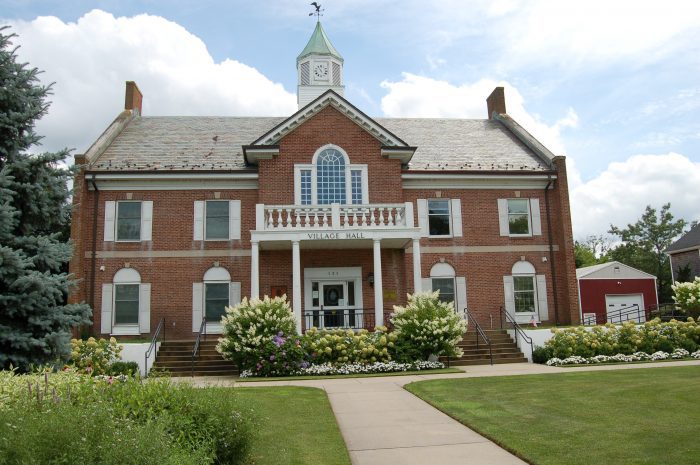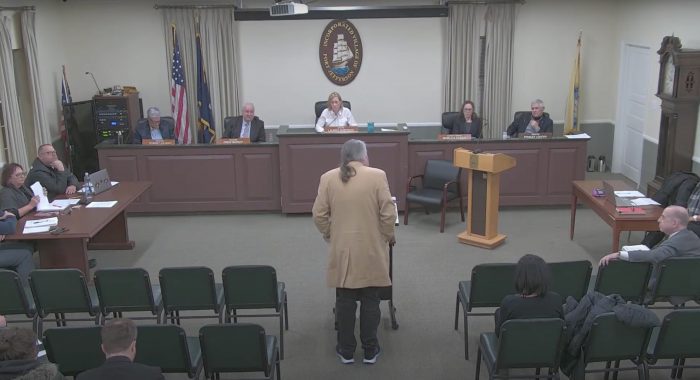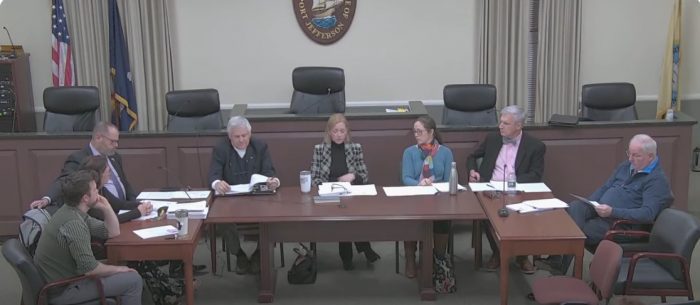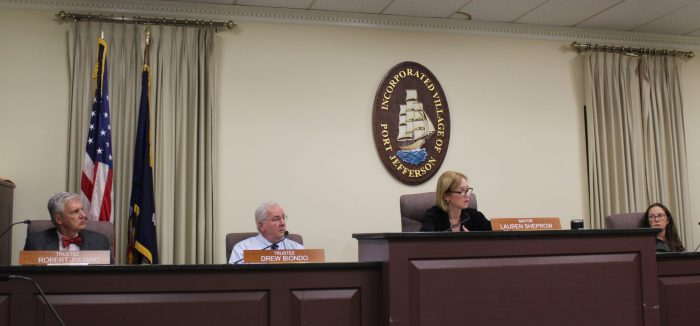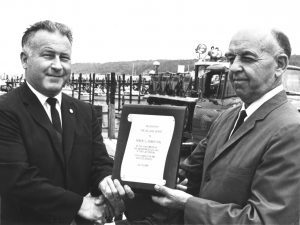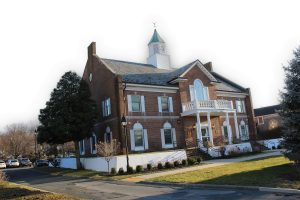By Peter SLoniewsky
Guidelines surrounding membership rates and a junior golfers program at the Port Jefferson Country Club is a recent topic of contention.
Because the country club is owned by the Village of Port Jefferson, the rates it charges to members require approval by the Port Jefferson Board of Trustees after they have been discussed by the club’s Board of Governors and approved by the club’s general manager and Country Club Management Advisory Council.
December 4 meeting
This year, the club introduced a membership rate proposal to the entire Board of Trustees at their Dec. 4 work session. This proposal contained two major differences: it gradually eliminated the junior members program for children 12-18 and proposed a new initiation fee. The website also states that members must be 19-29 on Apr. 1 to play golf. Junior members are not permitted as guests.
At the meeting, the club’s general manager, Tom Natola, advocated for removing the junior membership option on the basis that many members with junior memberships had parents who were members. Natola said that it made more sense to sell family memberships and eliminating the junior program would incentivize this.
He also said that there was a liability concern for juniors on the courses. At this meeting, both Mayor Lauren Sheprow and trustee Xena Ugrinsky discussed eliminating the junior program straightaway due to liability although they did not directly advocate for it.
Both at the meeting and afterward, parents provided significant blowback. Port Jefferson parent Nicole Connolly, whose son and daughter are both junior golfers, said there has been a pattern of policymaking that has eroded the program over the past several years. According to Connolly, negotiations two years ago included significant parent resistance against a CCMAC proposal to disproportionately increase junior membership rates.
CCMAC Chair Lisa Perry told TBR News Media that “the country club has always supported junior golfers and their families.”
She added that the Port Jefferson High School golf teams play for free at the club.
As a result of these controversies, the Board of Trustees requested that Natola prepare another proposal for their Dec. 18 public meeting.
Questions of CCMAC involvement
Complicating this, the process that led to the Dec. 4 proposal is unclear. Sheprow said, “[the Board of Governors] made recommendations to the country club manager, who reviewed the recommendations with the Country Club Management Advisory Council, also volunteers, after which the country club manager developed the recommendations he deemed appropriate.”
Perry said “The CCMAC reviewed the rates that were proposed by their general manager and agreed to recommend the rates to the board of trustees for their Dec. 18 meeting.’
CCMAC’s involvement in the process is enforced by Chapter 25 of the Village of Port Jefferson code. If it was not included in the process prior to the Dec. 4 rejection, the sourcing of that proposal is unclear.
CCMAC voted on a proposal on Dec. 17 that was then presented to the trustees at their Dec. 18 meeting. At this meeting, Sheprow expressed some regret for a lack of consideration of families and junior members throughout the processes that led to the Dec. 4 proposal, although she encouraged stakeholders to get involved earlier in the process. She also attributed a lack of communication to an effort to balance the budget, despite the requirement in the village code of CCMAC input.
The Dec. 18 proposal was largely similar to the Dec. 4 proposal but would further restrict juniors to times after 2 p.m. and increase the juniors’ fees by $1,000 — an increase that trustee Kyle Hill described as “insanity.”
The trustees voted to table the matter of junior membership and new limitations that it would place on junior members’ play times.
Resolution
This debate was cut short on Dec. 24 with a surprise announcement from Natola that “junior rates and playing and access policies will stay the same in 2025 as they were in 2024” and “there will be no further discussion at the Board of Trustees level related to the Junior Membership package.”
While this announcement was a win for the juniors, it brings back some questions about power in this process.
Natola requires approval from the CCMAC and the Board of Trustees to approve rates. His declaration in this memo that there would be no further discussion is not supported by the club’s governing rules.
Trustee Stan Loucks, who served as a liaison between the trustees and the club for eight years, told TBR News Media that he had no insights as to why the message was sent. He added that “[Natola’s decision] should most likely go back to the trustees for approval.
Whether a vote will be called is unclear, although Hill told TBR News Media that “it’s inappropriate for any village employee to say that a discussion among trustees is over” and “any Board of Trustee member can bring it up for discussion at a meeting.” He also noted that the Christmas Eve send date had stood in the way of discussion throughout the holiday season.
Future plans
For the future, Loucks emphasized a more stringent relationship between the club and the trustees and said he would support the appointment of a liaison to the club to guide the process in the future.
Additionally, in an email to TBR News Media, Sheprow wrote that “it is imperative that rate structure considerations support a long-term strategic plan” and work on such a plan would begin “immediately” while reinforcing the roles of the Board of Governors, CCMAC and the trustees alongside concerns about the club’s budgeting.
The resolution of this situation is still unclear. The specifics of the junior membership plan are still unspecified and the trustees have not yet considered it. The Board of Trustees will meet next for a public meeting on Jan. 29.
For more information go to the Port Jefferson Country Club website: www.portjeffcc.com.

